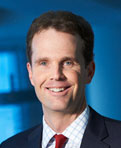 | |
Gary Chesson
|

|
By Matt Valley
Has the commercial real estate market reached a tipping point, where it's cheaper to build than it is to buy? That will be one of the questions up for discussion at the 5th Annual Carolinas Commercial Real Estate Conference that takes place Wednesday, June 11 at the Hilton Charlotte Center City.
Gary Chesson, partner with Trinity Capital Advisors, will be a featured speaker during the opening "State of the Market" panel. Chesson leads Trinity Capital Advisors' efforts in raising both high-net-worth and institutional capital while overseeing office acquisition and development activities. Carolinas Commercial Properties recently spoke with Chesson about the investment sales climate today and development trends.
CCP: How active are high-net-worth and institutional investors on the acquisition front in the Carolinas, what property type(s) is each group particularly interested in, and how competitive is the market for buyers?
Chesson: Generally speaking, institutional investors are very active in today's environment. The country's first-tier markets have been hot since 2012, but the second-tier markets of Charlotte and Raleigh have become very heated from an investment perspective during the last year.
Investment is active on all fronts and across all product types. Office is finally back as a favored investment class. Industrial is always a perennial favorite. We know that the multifamily investment cycle is trending toward mature, or even potentially overbuilt.
When more people are trying to compete for the same number of investment opportunities, pricing rises. Pricing has also risen because the real estate fundamentals continue to improve, and this allows both high-net-worth individuals and institutional investors to pump sunshine into their pro formas.
CCP: Trinity Capital Advisors has made a strategic decision to shift from acquisition to development. For example, its affiliate, Trinity Capital Development, has been selected to complete a build-to-suit distribution facility for McKesson Medical-Surgical Inc. in Riverwalk Business Park, located in Rock Hill, S.C. Meanwhile, in the northern part of metro Charlotte, Trinity is building a 277,000-square-foot speculative industrial building in Concord, N.C. The building will be located just outside The International Business Park at Concord. What factors have come together to make this a good time to develop in the Carolinas?
Chesson: When assets start trading above replacement cost, many firms in the private equity real estate space switch from acquisition to development because it's cheaper to build a building than it is to buy one. Capital has flooded back into the Carolinas -- and in fact has been back for years -- but the flow of institutional capital has been unusually strong lately, and that has continued to drive up pricing for existing assets. Further, tenant demand has been strong, particularly in the industrial arena, and that has led to a diminished supply. All of these factors point to a healthy climate for new development.
CCP: Nonfarm payroll employment rose by 288,000 nationally in April. How is the improving jobs picture affecting commercial real estate investment overall in the Carolinas?
Chesson: When the demand side of the equation shows consistent improvement, it causes both existing owners and buyers to have higher performance expectations for their assets. Improved demand also has the effect of making it feel safe to invest again, and then capital floods into our markets, sometimes driving pricing beyond sensible levels.
CCP: As you head into the InterFace Carolinas conference in June, what's the burning question on your mind about the state of the commercial real estate market?
Chesson: How long will this bull market last? The market can often be divided into two categories -- the capital markets and the property markets. The capital markets are currently the hottest, and that's what I'm referring to in terms of the bull market.
But the property markets have behaved differently. We experienced nice tenant demand in 2011 and 2012, and that felt like a rebound from the recession. Pent-up demand led space users to make real estate decisions that had been previously shelved.
However, in 2013, tenant demand was tepid in some areas, particularly the office arena. Decision-makers were scared by all the headline risk -- the partial federal government shutdown and the budget battles in Congress -- and they didn't want to hire in an uncertain climate. But now, the tepid tenant demand seems to be in the rear-view mirror. Decisions are being made again, and it feels like the property markets are beginning to heat up.
|